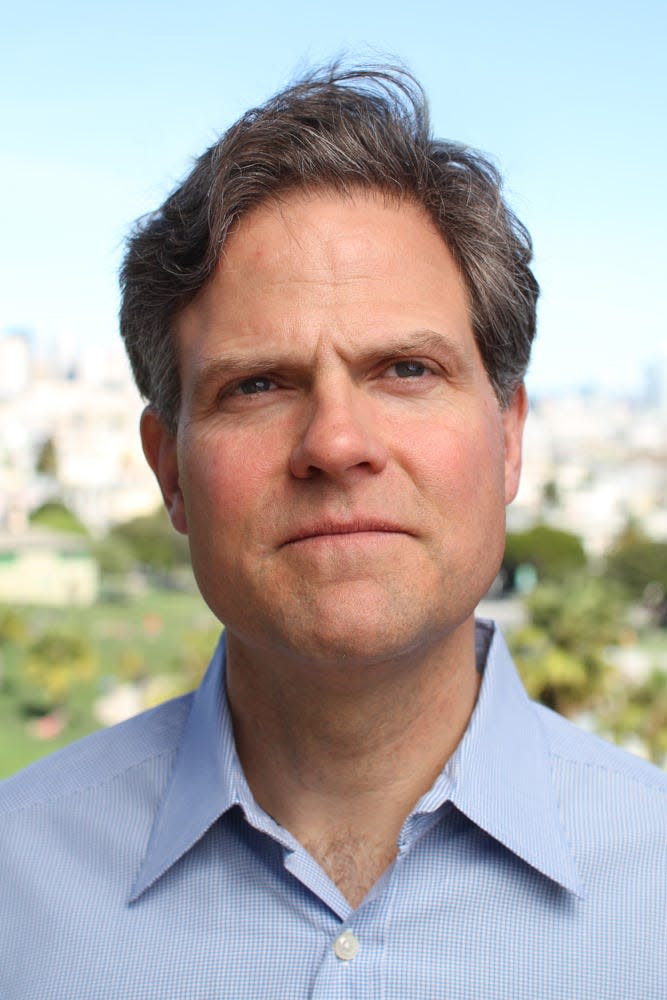How to sustain a constitutional democracy: the legacy of Judge Gilbert S. Merritt | Opinion
My father, Gil Merritt, passed away Monday at a moment in our history when wise democratic thinkers like him are needed most.
A judge on the Sixth Circuit Court of Appeals for 44 years, he believed that the success of American democracy is rooted not only in an intelligent Constitution and sound institutions but in an active citizenry imbued with a spirit of justice, truth, and self-sacrifice for the greater good.
“Liberty and the democratic spirit,“ he often said, “must exist within the hearts of the people.”
To him, democracy was a paradox. It mandates a system of government based on the rule of law, not the rule of men and women.
But this free form of government can only be sustained by fiercely determined citizens –– most importantly, leaders –– who are willing to stand up as courageous guardians of our freedoms against the forces of corruption and tyranny.
More: United States will only overcome Jan. 6 madness by turning toward truth | Opinion
How to fight against the forces that threaten democracy
Throughout his life, he was most inspired by Winston Churchill, defender-in-chief of liberal democracy during World War II. Even on his deathbed, the judge continued to remind others that adults and children alike must study historical figures like Churchill — and draw courage from them — if we wish to preserve democracy.
One speech by Churchill, more than any other, inspired his own daily work on behalf of democracy and equal justice for all. It is the British prime minister’s “We Shall Fight on the Beaches” address, delivered to the House of Commons soon after Hitler’s conquest of France, Luxembourg, the Netherlands, and Belgium.
Hear more Tennessee Voices: Get the weekly opinion newsletter for insightful and thought provoking columns.
Against the onslaught of Nazi rule, the prime minister said on June 4, 1940, “we shall not flag or fail. We shall go on to the end, we shall fight in France, we shall fight on the seas and oceans, we shall fight with growing confidence and growing strength in the air . ... we shall fight on the beaches, we shall fight on the landing grounds, we shall fight in the fields and in the streets, we shall fight in the hills; we shall never surrender.”
My father did not consider that these words applied only to the defense of democracy from foreign threats but also from internal subversion.
The way to fight the forces of internal corruption and lawlessness, he clarified, was not resort to arms but the relentless deployment of the Constitution, the courts, the rule of law, and the spirit of liberty to thwart every danger.
'You can lose a democracy yesterday'
In an interview in 2018, he had much to say about the fragility of democracy and the necessity of constantly refreshing the democratic spirit. Foremost, he called upon us not to be naïve about the inherent strength or durability of our constitutional government.

“We can lose our democracy,” he said, alluding to the collapse of the Athenian democracy in the 4th century BC. “You can lose a democracy yesterday––tomorrow. There is nothing inevitable about democracy. We can lose ours too.”
On the question of how to sustain a constitutional democracy, my father counseled others to rouse the spirit of Washington, Madison, Churchill, FDR, Lincoln, and MLK, among other historical figures who were willing to give their lives and fortunes for our liberties.
Sign up for Latino Tennessee Voices newsletter: Read compelling stories for and with the Latino community in Tennessee.
In this vein, he frequently made reference to a speech by a federal judge he admired greatly, Billings Learned Hand, appointed to the U.S. Court of Appeals for the Second Circuit in the 1920s.

In the speech, entitled “The Spirit of Liberty,” Judge Hand described American democracy in 1944 as “a faith in a common purpose, a common conviction, a common devotion.” It was, Hand said, a shared responsibility grounded in “the conscience and courage of Americans.”
“I often wonder,” Hand continued, “whether we do not rest our hopes too much upon constitutions, upon laws and upon courts. These are false hopes; believe me, these are false hopes. Liberty lies in the hearts of men and women; when it dies there, no constitution, no law, no court can even do much to help it.”
Sign up for Black Tennessee Voices newsletter: Read compelling columns by Black writers from across Tennessee.

Your state. Your stories. Support more reporting like this.
A subscription gives you unlimited access to stories across Tennessee that make a difference in your life and the lives of those around you. Click here to become a subscriber.
Democracy must exist in our minds and our hearts
That is why Judge Hand and Judge Merritt believed until their dying days that the last best hope for democracy resides in education.
In this shared belief, the two jurists were not merely pointing to classroom learning about civics and constitutional structures.
More fundamentally, they meant that we, each of us, must hand down the love of liberty and democracy to the next generation––and they to the next generation after them.
As my father said in the 2018 interview, democracy is a conviction that must exist not only in our minds but in our hearts. “If you have never had it, you do not know how to have it. It’s got to be bred.”
Eli Merritt is a research assistant professor in the Department of Political Science at Vanderbilt and the author of a forthcoming history of the American Revolution entitled "Disunion Among Ourselves."
This article originally appeared on Nashville Tennessean: Gilbert Merritt's legacy: How to sustain a constitutional democracy

